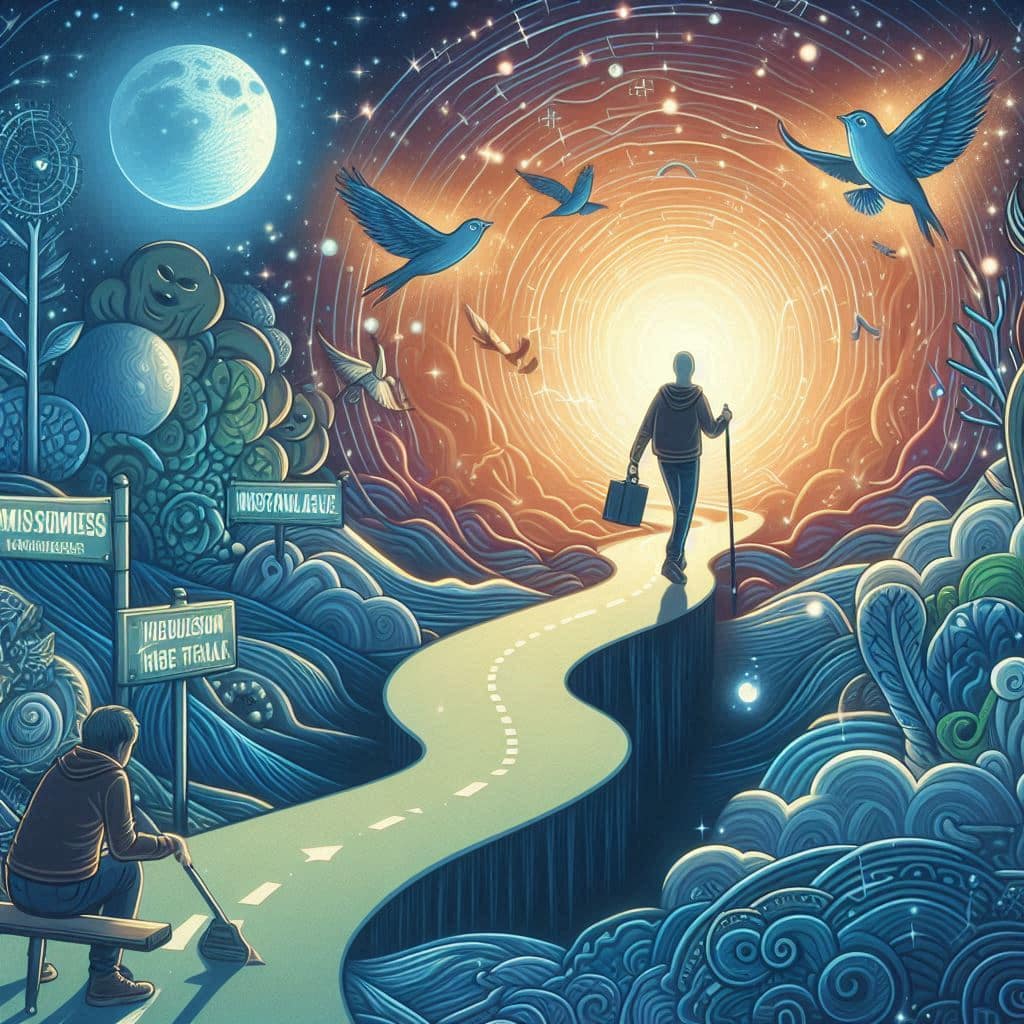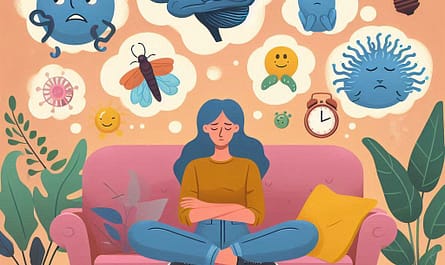Finding My Way Back

I am driving down an empty beach highway with my husband, taking the half-hour drive to my occupational therapist. It’s an early spring morning, and the world feels fresh, but my mind feels even fresher. The ride goes quickly as the waves glisten off to the side, and the warmth of the sun flickers through the windshield.
When we pull into the parking lot, I turn to him and ask, “What’s wrong? You’ve hardly said a word.”
He laughs softly, almost with relief, and answers, “You’ve talked more in this half-hour than you have all month!”
Clues
Sitting in the waiting room, I replay his words in my mind.
He’s right. I’ve been full of words. My mind, which had been sluggish and clouded for so long, is suddenly buzzing with ideas and plans. I want to call my sisters and check in, something I’ve been avoiding for weeks. I’m thinking about that towering pile of mail that’s been collecting dust on the dining room table. Should I make a list? Maybe I should go through it this afternoon.
Something is different.
My vision feels sharper. I actually combed my hair this morning without that heaviness dragging down my arms. I’ve stopped counting the hours until I can justify going back to bed. And when the phone rings, I don’t just let it go to voicemail — I pick it up.
Even my laptop, which has been sitting closed and cold like a judgmental reminder of all the work I’ve been avoiding, feels less intimidating. For the first time in a while, I feel like I’ve been granted re-entry into life. It’s as if I’ve been handed a ticket to “The Wide World Amusement Park,” even though I don’t meet the height requirement anymore. Depression and age have stolen my stature, but somehow, they’re letting me in.
I think I’m coming back.
The Caution in Coming Back
But I hesitate as those words settle into my mind.
I’ve learned not to trust this feeling too quickly. I’ve been here before — teetering on the edge of hope — only to tumble back into the darkness. Over the years, I’ve become superstitious about these moments of reprieve.
“Don’t be too happy. You’ll be disappointed.”
“Don’t tell anyone. They’ll expect too much.”
“Don’t get too comfortable.”
“Don’t take credit for the ups, because blame always follows.”
“Remember — you’re not cured. You’re only reprieved.”
These thoughts whisper in the back of my mind, casting shadows over the light that’s beginning to return.
A Long, Familiar Pattern
I’ve known this pattern for over 30 years.
The ebb and flow of my mental illness has shaped so much of my life. I’ve endured its unpredictable cycles — the deep, soul-crushing lows followed by tentative highs that never seem to last long enough.
The pain and disruption it has caused over the years have made me hypervigilant. Every upward swing feels like a dangerous cliff I’m walking along, knowing that one misstep could send me plunging back down. This caution, this phobia of hope, is something I’ve developed as a defense mechanism.
It’s not just me who feels this way.
My family and friends have learned to be just as cautious. They’ve witnessed the rollercoaster of my life — the moments of joy where I seemed “better” followed by the sudden and heartbreaking returns to darkness. They’ve learned not to get too hopeful, not to expect too much.
Even their love and support, as unwavering as it is, exists within this delicate space. There’s a separateness between us — an invisible line where their understanding ends, and my experience begins.
The Isolation of Mental Illness
This separateness isn’t intentional, but it’s there.
I can feel it when I try to explain what it’s like to be trapped inside my own mind. Words never fully capture the way depression distorts time, the way anxiety hijacks my body, or how exhaustion makes even simple tasks feel impossible.
They love me deeply, but they can’t fully understand. And that’s okay. But it means that in the moments where I’m clawing my way out of the darkness, I often feel alone.
Even when I’m “coming back,” there’s a distance. A gap that love alone can’t always bridge.
Why I Don’t Always Trust the Good Days
Good days feel foreign after so many bad ones.
When I’m in the middle of a depressive episode, I know what to expect. The pain, the numbness, the exhaustion — they’re familiar. But when the fog lifts, and I start to feel better, that’s when the fear creeps in.
I know how fragile this feeling is.
Will it last? Or is it just another fleeting moment before the next crash?
That uncertainty makes it hard to celebrate the good days. I don’t want to get attached to something that might disappear. So, I stay guarded. I hold my joy at arm’s length, as if keeping it at a distance might protect me from the inevitable fall.
But… I’m Learning
I’m learning that it’s okay to savor the good days — even if they’re temporary.
I’m learning that I can let myself feel happiness without fearing the return of the darkness.
It’s a slow process.
Each time I “come back,” I remind myself that this moment, this feeling, deserves to be acknowledged and appreciated. I don’t have to downplay it or pretend it’s not happening just because I’m afraid it won’t last.
Progress isn’t linear.
Healing isn’t about staying in the light forever — it’s about finding the courage to return to it, over and over again.
Finding My Way Back
So here I am, sitting in the waiting room, holding onto that fragile hope.
My mind feels clearer. My heart feels lighter. I can sense the world opening up again.
I know this feeling may not last forever, but for now — I’m here.
I’m learning to trust the process, to believe that even when I get lost again, I will always find my way back.
Because I’ve done it before.
And I’ll do it again.



